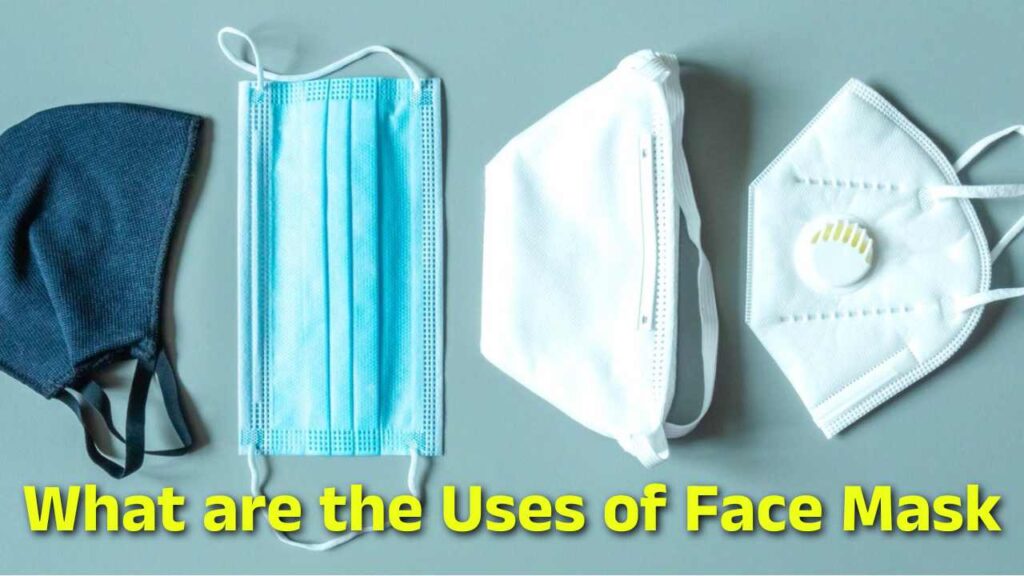Face masks have become an essential part of daily life, especially in the wake of global health crises like the COVID-19 pandemic. Their importance extends beyond just preventing viral infections; they also serve as protective barriers in various fields such as healthcare, industrial work, and environmental protection. This document explores the diverse uses of face masks, highlighting their significance in different settings.

1. Prevention of Infectious Diseases One of the primary uses of face masks is to reduce the spread of infectious diseases, particularly those transmitted through respiratory droplets. Masks act as physical barriers, preventing droplets from being released into the air when an individual talks, coughs, or sneezes. During the COVID-19 pandemic, wearing masks became a global mandate to curb the virus’s transmission. N95 masks, surgical masks, and cloth masks have all been widely used, each offering varying levels of protection.
2. Protection in Healthcare Settings Healthcare professionals rely on face masks to protect themselves and their patients from infections. Surgical masks and N95 respirators are commonly used in hospitals and clinics, where the risk of exposure to infectious diseases is high. These masks not only protect healthcare workers from airborne pathogens but also prevent contamination of sterile environments during surgeries and medical procedures.
3. Air Pollution Protection In cities with high levels of air pollution, face masks have become a necessity for daily commuters and outdoor workers. Masks designed specifically for air pollution, such as N95 or N99 masks, filter out harmful particles, including PM2.5 and PM10. These masks are effective in reducing exposure to pollutants, allergens, and other airborne contaminants, thereby protecting respiratory health.
4. Industrial Safety Workers in industries such as construction, mining, and chemical manufacturing are often exposed to hazardous particles, fumes, and gases. Specialized masks, including respirators and dust masks, are used to prevent inhalation of toxic substances. Masks with filters, such as P100 and N95 respirators, are particularly effective in providing protection in hazardous industrial environments.
5. Protection Against Allergens Face masks are also useful for individuals who suffer from allergies caused by pollen, dust mites, and pet dander. Wearing masks during allergy season or in dusty environments can significantly reduce exposure to allergens, minimizing allergic reactions and improving overall comfort.
6. Prevention of Cold and Flu Face masks are commonly used during flu seasons to prevent the spread of influenza and other respiratory infections. They are especially useful in crowded spaces such as public transport, airports, and workplaces, where the risk of infection is higher.
7. Maintaining Hygiene in Food Industry In the food processing and hospitality industries, face masks are used to ensure hygiene and prevent contamination. Food handlers wear masks to avoid spreading germs, hair, or saliva to food products. This practice is essential in maintaining food safety standards and preventing foodborne illnesses.
8. Cultural and Social Practices In some cultures, wearing face masks is a common practice even outside of health crises. In countries like Japan and South Korea, people wear masks to protect themselves from colds, pollution, or as a courtesy when they are unwell. Face masks have also become fashion accessories, with designer and customized masks gaining popularity.
9. Psychological Comfort Wearing face masks can provide psychological comfort and reduce anxiety for individuals who are worried about getting sick or spreading illness to others. The act of wearing a mask is often seen as a proactive measure, instilling a sense of control and responsibility.
10. Reducing Facial Contact Face masks act as a physical reminder to avoid touching one’s face, particularly the nose and mouth. Frequent face-touching can transfer viruses and bacteria from contaminated hands to mucous membranes, increasing the risk of infection.
11. Travel Safety During travel, especially on flights and public transportation, face masks help reduce the risk of contracting or spreading illnesses. Airlines and public transport authorities often mandate mask usage to ensure passenger safety and prevent potential outbreaks.
12. Environmental Protection In environments exposed to dust, smoke, or hazardous chemicals, face masks serve as critical protective gear. Firefighters, construction workers, and individuals working in hazardous waste management rely on masks to protect their respiratory systems from harmful particles.
Conclusion Face masks serve a wide range of purposes, from preventing infectious diseases to protecting individuals in industrial and polluted environments. Their effectiveness depends on proper usage, fit, and the type of mask being used. As society continues to face health and environmental challenges, face masks will remain an essential tool in safeguarding public health and promoting overall well-being.
